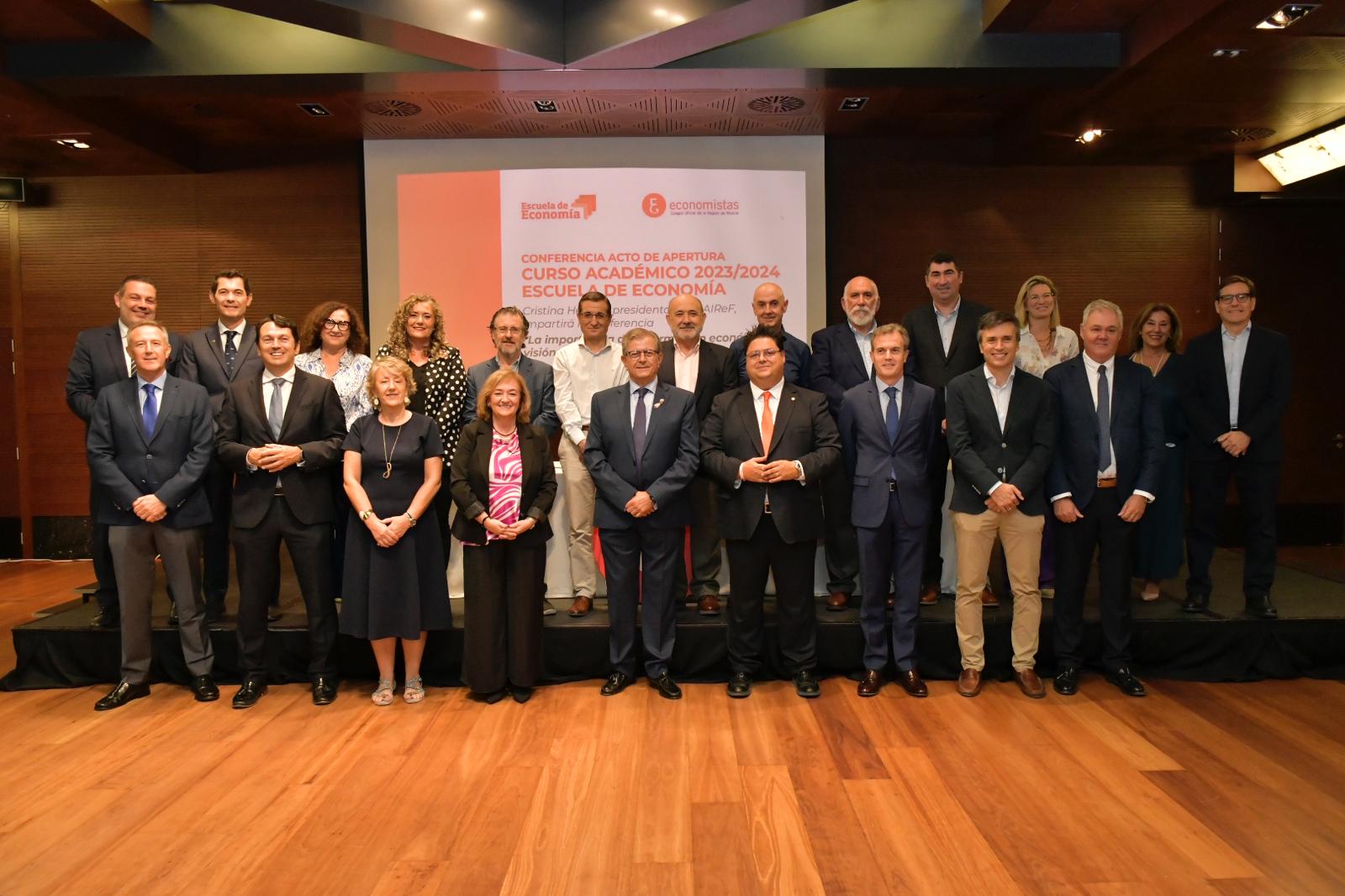
The President of the Independent Authority for Fiscal Responsibility (AIReF), Cristina Herrero, opened the new academic year 2023/2024 today at the School of Economics of the Association of Economists of Murcia, and took the opportunity in her speech to stress the importance of guaranteeing the efficient and effective use of public resources allocated to education through evaluation policies.
Cristina Herrero began her speech by underlining the training work undertaken by Associations of Economists, above all bearing in mind the complexity of today’s world, with structural changes in such areas as demographics, technology and climate, and the coincidence of ups and downs and crises since 2020, which obliges them to navigate in an environment of instability and uncertainty. The President of AIReF highlighted three essential qualities for economists in today’s world: transparency in explaining any change in the figures, humility in the face of potential errors in analyses and forecasts, and non-conformity in being ready and willing to learn and continuously change.
In her opinion, there is room to raise the level of economic and financial education in society, which is fundamental for people to have greater capacity to manage their resources in their professional and personal lives, and to understand and assess public action. A society educated in these matters is a more resilient and inclusive society, according to the President of AIReF.
The institution seeks to contribute to the best possible economic and financial education by making its information accessible through the use of didactic language and based on the development of interactive tools that facilitate the understanding of its work. It also publishes all its analyses, implements a very active communication policy and a training scholarship and research programme that draws AIReF closer to the new generation of economists.
Cristina Herrero explained that education, in its broadest sense, is undoubtedly a driver of growth and social well-being, above all in economies like Spain’s, which is characterised by suffering in a particularly intense manner from economic cycles. In her opinion, this succession of cycles evidences long-term growth problems and the convergence of more advanced economies, which require a clear commitment to education. She indicated that extensive literature exists on the positive impact of education on productivity and growth and on its capacity to reduce inequalities and create more resilient societies.
However, average public spending on education in Spain over the last decade has amounted to 4.2% of GDP, 0.6 points below the European average. Furthermore, in terms of efficiency, Spain is also lagging behind, with average scores in maths and sciences that are below the EU average and a lack of adaptation of existing profiles to the market demand.
Education, largely overlooked in evaluation
In addition, despite the fact that the Recovery, Transformation and Resilience Plan (RTRP) includes driving education as a political lever, this does not amount to an in-depth commitment to the evaluation of education, which is key to ensuring the efficient and effective use of public resources.
In fact, within the framework of the spending evaluation cycle known as the Spending Review, AIReF has undertaken 13 studies, only two of which have looked closely at training (university scholarships and the talent promotion programme and employability in R&D&I). In the next cycle of the Spending Review, already underway, education is once again largely overlooked, despite the fact that evaluation has shown its ability to achieve significant change. For example, thanks to AIReF’s evaluations, the scholarship programme has been brought forward, such that students can find out before the start of the academic year whether they will receive one or not, and the income thresholds for more vulnerable students have been updated.
In this context, Cristina Herrero considered that education is not being given the attention it deserves, perhaps because its effects on growth and social well-being take more time to be felt. However, the commitment to education requires a forward-thinking approach and a true country commitment. In her opinion, it is necessary to fuel this debate in order to acknowledge the transforming nature of education and its potential for economies to grow and become socially fairer.






